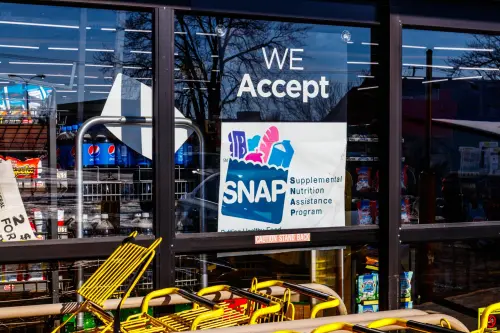Editor’s Note: President Obama announced this week that he is directing federal agencies to “ban the box” in their hiring decisions, prohibiting them from asking prospective government employees about their criminal histories on job applications. In this post, Jeffery Robinson of the ACLU discusses the impact of this executive action. For more on the importance of ban the box policies and other criminal justice reforms in improving the lives of minority boys and men, see the recent Brookings paper, “The challenges of My Brother’s Keeper”by Fredrick Harris.
Years ago, I represented a young man named “Sammy” who was convicted of a serious crime. It was clear to me that Sammy’s criminal activity was related to terrible abuse he had suffered as a child. Sammy had been at his job for several years and was well known and liked by his supervisors and co-workers at the time of his conviction. Despite his felony guilty plea, Sammy kept his job. His supervisor explained that the conviction sounded horrible and would have justified termination but went on to say, “we knew him, and we heard his story. We decided he was still Sammy and we wanted to help.” Sammy remains employed today.
Despite his conviction, Sammy was and is able to be a part of the workforce, and he and his community are better off that way. Working may be a privilege but, in most cases, it’s a requirement for all Americans to survive. All too often, convictions prevent hardworking Americans from getting a decent job. But maybe that is about to change.
Yesterday President Obama provided no new legal rights or protections to people with criminal records when he “banned the box” for federal job applicants. So what did he do? He directed the U.S. Office of Personnel Management to modify its hiring rules to delay inquiries into a person’s possible criminal history until later stages of the application process. Instead of being rejected with little to no further inquiry, this “ban” may provide applicants an opportunity to introduce themselves to an employer in person and to explain the circumstances behind a conviction. Unlike the so-called “Ferguson Effect,” which is based on supposition and no analysis, people with convictions have for years experienced a real “Scarlet Letter Effect”—if you have a conviction, you can forget about an interview, especially if you are a person of color. Banning the box provides a hopeful first step in facilitating cultural change that will lead to people with convictions having the chance to move forward after paying their debt to society.
Stereotypes about people who have a conviction can seriously obstruct someone’s efforts to earn an honest living. Hiring managers are likely to hold various preconceived notions about applicants who have been through the criminal justice system. But what hiring managers don’t understand is that some of the people who have been funneled through the system shouldn’t have been there in the first place, and some who earned their conviction are ready for hard, honest work. But there’s no chance for someone to explain this if they never get an interview.
Social research has tested how people get jobs. In one study, 5,000 mock “applicants” submitted resumes to companies doing job searches. The resumes had identical qualifications. The only difference in the resumes was that some had white (Greg) or Black (Jamal) sounding names. The results were depressing: “applicants” who had resumes with white sounding names got 50% more callbacks than “applicants” with resumes having Black sounding names. Yet we assume that people of color experience disproportionate rates of poverty because of laziness, rather than because of centuries of unequal opportunity to accumulate wealth. I have not even mentioned the public health and education disparities that exist within communities of color compared to whites—this is also a game changer in regards to seizing opportunity and living the American Dream. Add on a criminal conviction, and words like “hopeless” come to mind when it comes to the chance of finding a job.
It is past time for us to recognize and explicitly acknowledge that these stereotypes impact how education, employment, and criminal law enforcement play out in our country. These factors impact everything, from the level and quality of community support we provide to poor parents, to which children get what discipline for “acting out” in school. And they impact the perceptions of police, prosecutors, and judges who exercise discretion at every point in the criminal justice system in deciding how to handle a case. What social science tells us is that people in all of these, and other professions, are significantly impacted by unconscious race bias as a result of growing up in an America that has developed over centuries with significant race bias. How could it be otherwise?
The lesson here? This is not a white problem or a black problem, it is an American problem.
Banning the box for federal applicants, and expanding the ban to cover federal contractors, may start to erode the damage these stereotypes inflict. It will give people with convictions a chance to be seen as something more than a convicted felon. It will give employers the chance to see people with convictions as something more than a person with a prior record. This is where policy and procedure meet hearts and minds.
A reminder not to fool yourself, we need both.
The Brookings Institution is committed to quality, independence, and impact.
We are supported by a diverse array of funders. In line with our values and policies, each Brookings publication represents the sole views of its author(s).



Commentary
Convictions often prevent Americans from getting good jobs, but this may be about to change
November 4, 2015